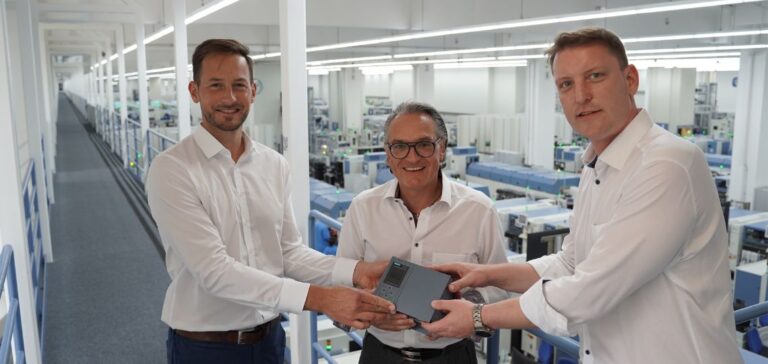Technology company Siemens and BayWa AG work together to advance CO2-optimized industrial production.
Siemens and BayWa join forces for CO2-optimized production in innovative pilot project
Siemens and BayWa unite Sigreen and BayWa Carbon Connect for a green supply chain. Sigreen measures the carbon footprint of products, then designs measures to minimize CO2 emissions. BayWa Carbon Connect then offsets the remaining emissions by purchasing CO2 certificates from reliable climate protection projects.
This partnership promotes understanding of product-specific emissions in the supply chain, while supporting the transition to greener production.
This pilot project focuses on projects that store CO2, such as biomass or humus. Uniform quality standards guide climate protection projects. The combination of software solutions enables the transmission of information on offset projects along the supply chain, while preserving the data sovereignty of suppliers and sub-suppliers.
Towards a green supply chain: a pilot project to offset industrial emissions
This establishes uniform standards via the digital method for compensation within the supply chain. Manufacturers will be informed whether their suppliers’ products have been compensated, and with which specific projects.
“The stated vision of this joint pilot project is a continuous, certified process, from the generation of unavoidable carbon emissions to their ultimate removal from the atmosphere,” says Dr. Gunter Beitinger, Senior Vice President Manufacturing, Plant Digitization and Sigreen at Siemens and President of the Estainium Association.
“Until now, the lack of transparency has meant that companies have not been able to fully trust their own supply chain’s neutralization and offsetting measures. I believe that by combining BayWa Carbon Connect and Sigreen, we have paved the way for uniform quality standards within the supply chain, and thus taken an important transformative step towards credible emissions offsetting in industry,” says Steffen Winkler, Head of the IT Products and Services Business Unit at BayWa AG and responsible for BayWa Carbon Services.
In a concrete example, Siemens highlights its Amberg plant. In 2023, from January 1 to December 31, Siemens is offsetting the carbon emissions generated by the production of Simatic S7-1500 products.
Bringing real data to life: how Sigreen is transforming emissions management
This takes into account emissions from the supply chain right up to the factory gate (“cradle to gate”). Over the period 2015 to 2022, Electronics Works Amberg demonstrably reduced its CO2 emissions by 49% and is aiming for carbon neutrality by 2026. Various measures are used to reduce supply chain emissions.
For example, Siemens relies on the use of sustainable materials and cooperation with suppliers to reduce product-specific carbon footprints. In 2023, the plant received the Sustainability Award from the World Economic Forum. Sigreen With Sigreen, Siemens already enables its customers to identify and share information on product-specific emissions throughout the supply chain, based on real data.
This enables production companies to quantify the effectiveness of measures to use renewable energies, save resources and shorten transport routes throughout the value chain. To improve data reliability, Siemens relies on cryptographic keys and the inclusion of independent certification bodies. Sigreen is part of the open, interoperable Siemens Xcelerator portfolio.
BayWa Carbon Connect: the digital pillar of emissions management and offsetting
BayWa Carbon Connect is the digital component of BayWa Carbon Services. It facilitates comprehensive climate management and ensures reliable emissions offsetting using digitization. To be included in the portfolio, climate protection projects must meet the criteria.
This makes them extremely transparent and credible. BayWa evaluates the projects implemented through careful monitoring using remote sensing technology. BayWa Carbon Connect precisely records the individual measurements of each project for detailed documentation. The software also simplifies data exchange with other software systems via digital interfaces.
BayWa Carbon Services accesses the registry to guarantee the uniqueness of CO2 certificates. During the pilot project, the Estainium association worked closely with the climate protection projects.
Siemens and BayWa join forces to realize the vision of industrial carbon neutrality through digital technologies.






















